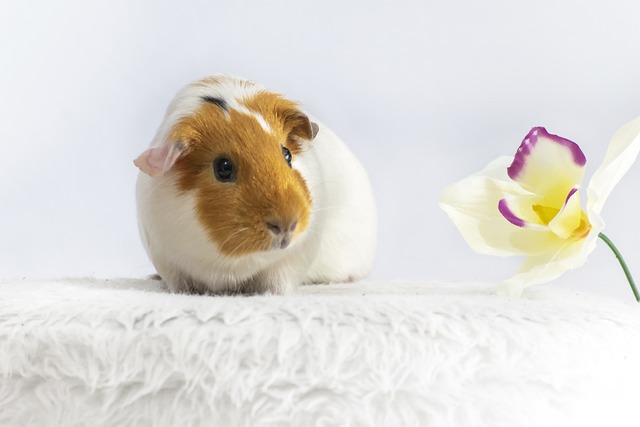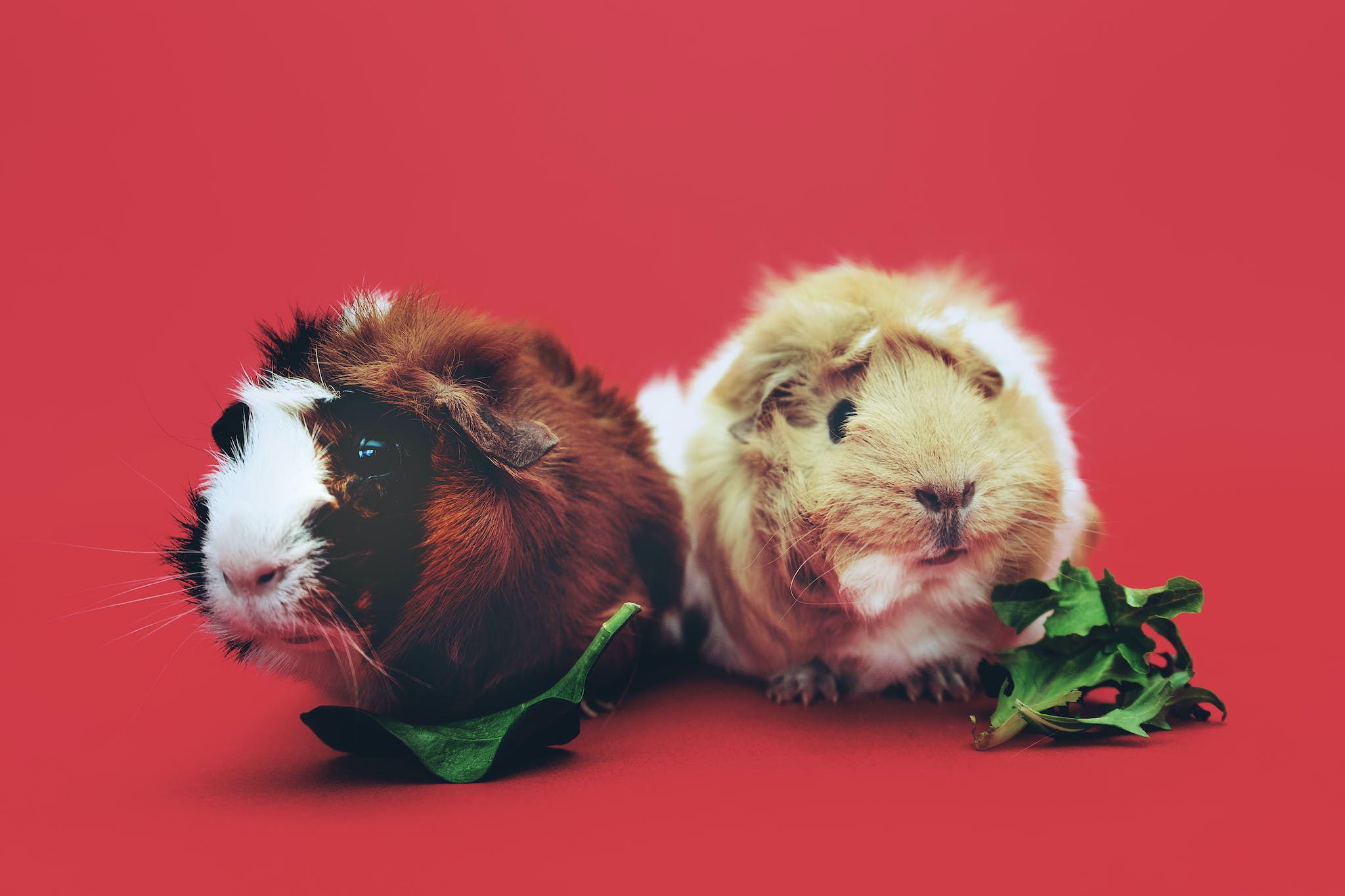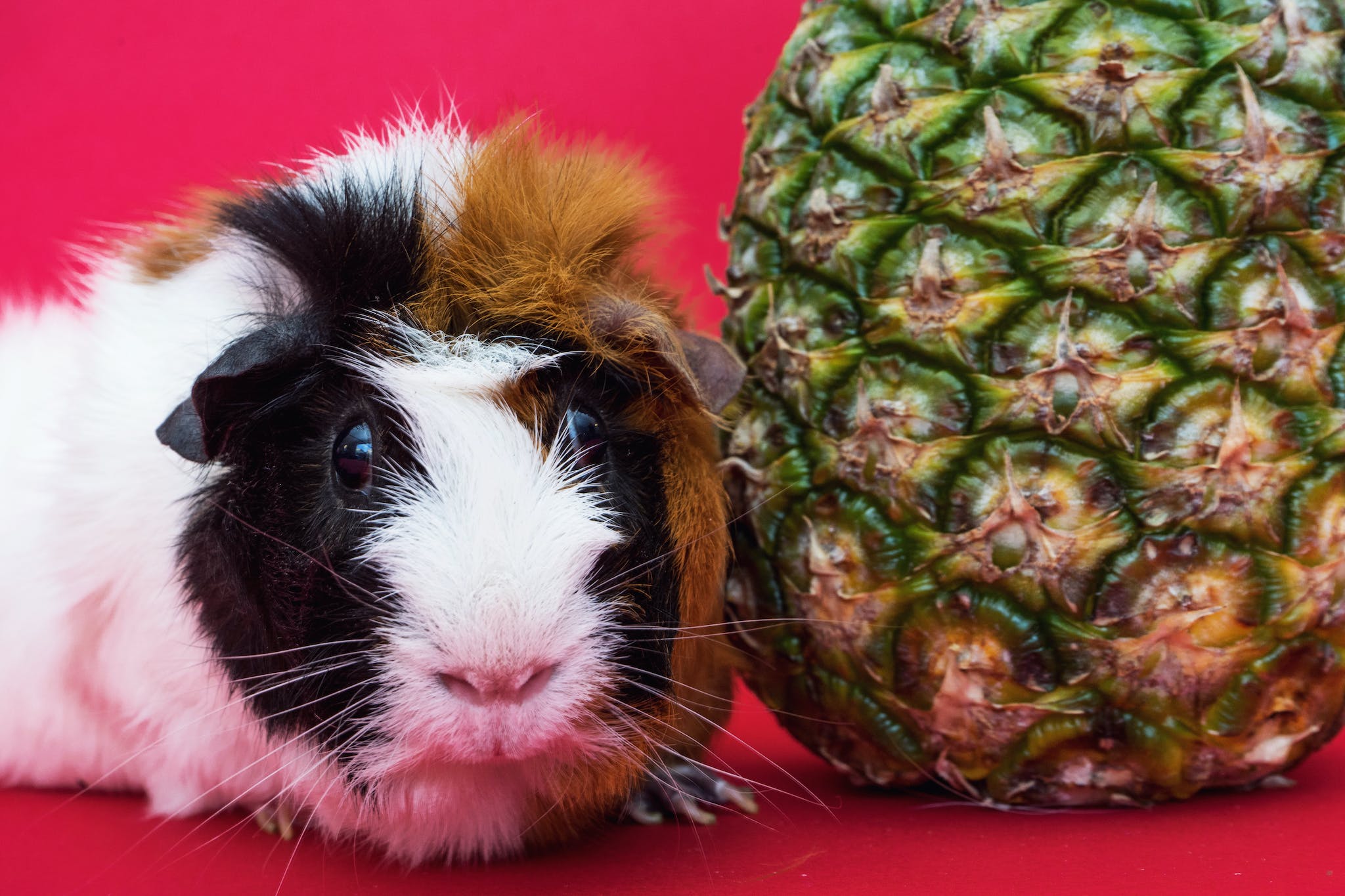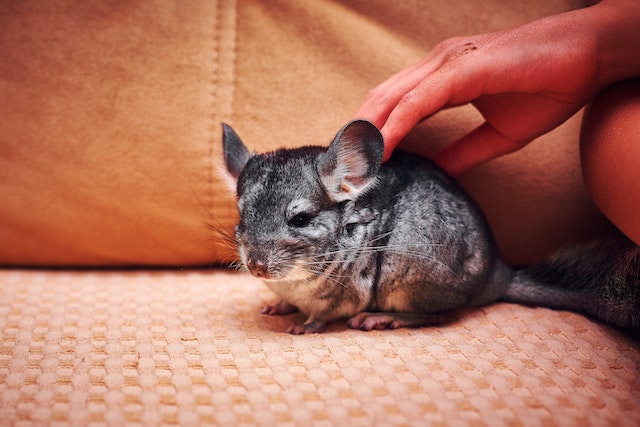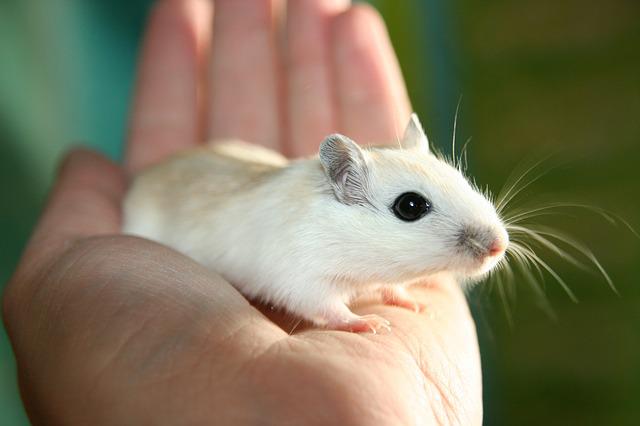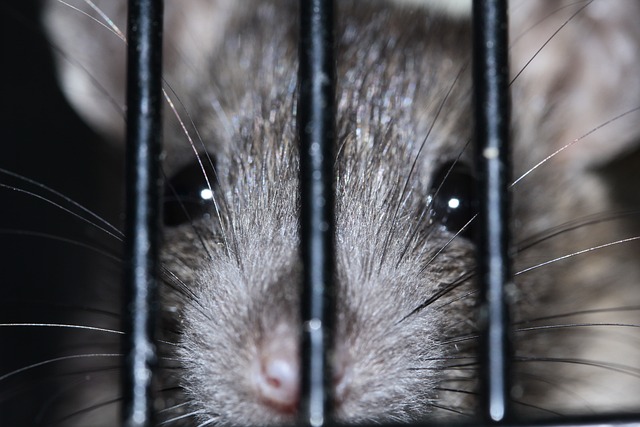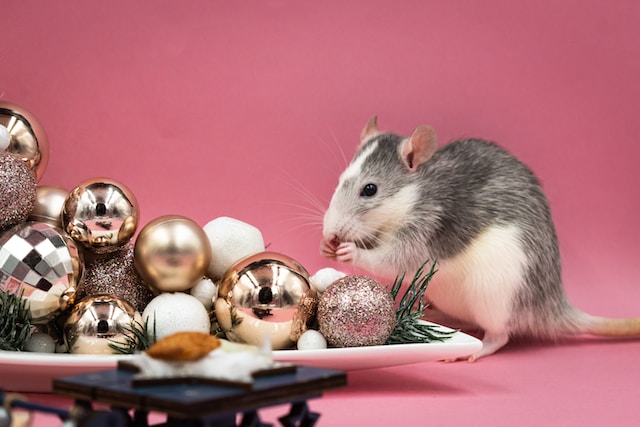Best Guinea Pig Breeds: A Guide to Choosing the Perfect Pet
There are some affiliate links below, but they are all products I highly recommend. For more info, view my disclosure here.
Are you considering getting a guinea pig as a pet? Guinea pigs are adorable, social, and easy to care for, making them a popular choice among pet owners. However, with so many different guinea pig breeds to choose from, it can be overwhelming to decide which one is right for you. In this article, we will introduce you to some of the best guinea pig breeds and provide you with the information you need to make an informed decision.
When it comes to guinea pigs, there are two main types: short-haired and long-haired. Short-haired guinea pigs are low maintenance and easy to care for, while long-haired guinea pigs require more grooming. Within these two types, there are several different breeds to choose from, each with their own unique characteristics. Some breeds are known for being more social, while others are better suited for single-pet households. By understanding the different breeds, you can choose the one that best fits your lifestyle and personality.
In this article, we will cover some of the most popular guinea pig breeds, including their physical characteristics, temperament, and care requirements. Whether you are a first-time guinea pig owner or an experienced pet parent, this guide will help you find the perfect furry companion. So, let’s dive in and explore the world of guinea pig breeds!
Understanding Guinea Pig Breeds
If you’re considering getting a guinea pig, it’s important to understand the different breeds available. Guinea pigs come in a variety of shapes, sizes, and colors, each with their own unique characteristics and needs. In this section, we’ll explore the history and origin of guinea pig breeds, the various breed classifications, and the characteristics of some of the most common breeds.
History and Origin
Guinea pigs are native to South America, where they were first domesticated by the Incas over 3,000 years ago. They were originally kept as a source of food and used in religious ceremonies. It wasn’t until the 16th century that guinea pigs were introduced to Europe, where they became popular pets among the wealthy.
Breed Classifications
There are two main classifications of guinea pig breeds: short-haired and long-haired. Short-haired breeds are the most common and require minimal grooming. Long-haired breeds, on the other hand, require regular grooming to prevent matting and tangling of their fur.
Within these two classifications, there are several different breeds, each with their own unique characteristics. Some of the most common breeds include the American guinea pig, Peruvian guinea pig, and Abyssinian guinea pig.
Characteristics of Common Breeds
- American Guinea Pig: This breed is the most common and is known for its short, smooth coat. They are friendly and easy to handle, making them a great choice for first-time guinea pig owners.
- Peruvian Guinea Pig: This breed has long, silky hair that requires regular grooming. They are known for their docile nature and make great pets for experienced guinea pig owners.
- Abyssinian Guinea Pig: This breed has a distinctive “rosette” pattern in their fur and comes in a variety of colors. They are active and playful, making them a great choice for families with children.
No matter which breed you choose, it’s important to provide your guinea pig with a healthy diet, a clean living environment, and plenty of love and attention. With proper care, guinea pigs can make wonderful, loyal pets for many years to come.
Popular Short-Haired Breeds
If you are looking for a low-maintenance guinea pig breed, short-haired guinea pigs may be the perfect fit for you. They are easy to groom and have a smooth coat that does not require much attention. Here are a few of the most popular short-haired guinea pig breeds:
American Guinea Pig
The American Guinea Pig is the most popular guinea pig breed in the United States. They have a short coat that is easy to maintain and comes in a variety of colors. They are known for their friendly and social personalities, making them great pets for families with children.
Teddy Guinea Pig
The Teddy Guinea Pig is a short-haired guinea pig breed that has a unique appearance. Their coat is rough and curly, giving them a teddy bear-like appearance. They are known for their playful and affectionate personalities, making them great pets for those who want a guinea pig that loves to cuddle.
White Crested Guinea Pig
The White Crested Guinea Pig is a short-haired guinea pig breed that has a distinctive white crest on its forehead. They are known for their friendly and curious personalities and are great pets for families with children. They have a smooth coat that is easy to groom and comes in a variety of colors.
In conclusion, short-haired guinea pigs are a great option for those who want a low-maintenance pet. The American Guinea Pig, Teddy Guinea Pig, and White Crested Guinea Pig are all popular short-haired guinea pig breeds that have unique characteristics and personalities. Choose the breed that best fits your lifestyle and personality, and enjoy the company of your new furry friend.
Exotic Long-Haired Breeds
If you’re looking for a guinea pig breed with a luxurious, long coat, then you might want to consider one of the exotic long-haired breeds. These guinea pigs have a stunning appearance and require extra grooming to keep their coat healthy and tangle-free.
Peruvian Guinea Pig
The Peruvian guinea pig is one of the most recognizable long-haired breeds. Their coat can grow up to 20 inches long, and it requires daily grooming to prevent matting and tangling. Peruvian guinea pigs have a friendly and outgoing personality and can make great pets for families with children.
Silkie Guinea Pig
The Silkie guinea pig has a soft, fluffy coat that resembles that of a stuffed animal. Their hair grows in all directions, which gives them a unique and adorable appearance. Silkie guinea pigs are known for their friendly and affectionate personalities and can make great pets for first-time guinea pig owners.
Texel Guinea Pig
The Texel guinea pig has a curly, dense coat that requires regular grooming to prevent matting. Their hair is unique in that it grows in ringlets all over their body, giving them a distinctive appearance. Texel guinea pigs are known for their playful and curious personalities and can make great pets for families with children.
Overall, if you’re looking for a guinea pig with a long, luxurious coat, then one of the exotic long-haired breeds might be the perfect fit for you. These guinea pigs require extra grooming, but their stunning appearance and friendly personalities make them well worth the effort.
Unique and Distinctive Breeds
If you are looking for a guinea pig breed that stands out from the rest, consider one of these unique and distinctive breeds.
Abyssinian Guinea Pig
The Abyssinian guinea pig is known for its distinctive rosettes, which are swirls of hair that form around the body. These guinea pigs come in a variety of colors and patterns, and each one has a unique set of rosettes. Abyssinian guinea pigs are also known for their energetic personalities and love of attention. They require regular grooming to keep their hair looking its best.
Rex Guinea Pig
The Rex guinea pig has a unique coat that is soft and plush, with a curly texture. This breed comes in a variety of colors, including black, white, and orange. Rex guinea pigs are known for their friendly and outgoing personalities, and they make great pets for families with children. They require regular grooming to keep their coats looking healthy and shiny.
Skinny Pigs
Skinny pigs are a hairless breed of guinea pig that are known for their unique appearance. These guinea pigs have a thin layer of hair on their bodies, which makes them look like they are wearing a sweater. They come in a variety of colors and patterns, and they require special care to keep their skin healthy. Skinny pigs are known for their affectionate personalities and love of attention.
Overall, these unique and distinctive guinea pig breeds are sure to make a statement in your home. Whether you choose an Abyssinian, Rex, or Skinny pig, you are sure to have a pet that is both entertaining and loving.
Care and Maintenance
Taking care of your guinea pig is essential to ensure their health and happiness. Here are some important aspects of guinea pig care and maintenance that you need to keep in mind.
Grooming Requirements
Guinea pigs have specific grooming needs that you need to fulfill to keep them healthy and clean. Depending on the breed, your guinea pig may require daily, regular, or minimal grooming. Long-haired breeds, such as the Peruvian and the Silkie, need daily grooming to prevent matting and tangling of their hair. Short-haired breeds, such as the American and the Abyssinian, require regular grooming to keep their coat shiny and healthy. Minimal grooming is needed for hairless breeds, such as the Skinny Pig and the Baldwin.
Grooming your guinea pig involves brushing their coat, trimming their nails, and cleaning their ears and eyes. You can use a soft-bristled brush to remove any loose hair and dirt from your guinea pig’s coat. Use a small animal nail clipper to trim their nails, being careful not to cut the quick. Clean your guinea pig’s ears and eyes with a damp cloth, making sure not to get any water into their ears.
Diet and Nutrition
Guinea pigs require a diet rich in vitamin C, which is essential for their health. You can provide your guinea pig with vitamin C through fresh fruits and vegetables, such as bell peppers, kale, and strawberries. You can also give them vitamin C supplements, but be sure to consult with your veterinarian first.
In addition to vitamin C, your guinea pig’s diet should consist of hay, pellets, and fresh water. Hay is an important source of fiber, which aids in digestion and prevents dental problems. Pellets should be of high quality and should not contain any seeds or nuts. Fresh water should be provided at all times, preferably in a water bottle rather than a bowl to prevent spilling and contamination.
Health and Wellness
Guinea pigs are prone to certain health problems, such as respiratory infections, dental problems, and skin conditions. It is important to take your guinea pig to a veterinarian for regular check-ups and to address any health concerns promptly.
The lifespan of a guinea pig is typically between 4 to 8 years, depending on the breed and their overall health. Providing your guinea pig with proper care and nutrition can help ensure a long and healthy life.
Choosing the Right Breed
When it comes to choosing the right guinea pig breed, there are a few factors to consider to ensure that you find the perfect match for you and your family. Here are some things to keep in mind:
Temperament and Behavior
Different guinea pig breeds have different temperaments and behaviors. Some are more active and playful, while others are more laid back and relaxed. If you’re looking for a guinea pig that loves to play and interact with you, breeds like the American or Abyssinian may be a good choice. On the other hand, if you’re looking for a guinea pig that is more calm and gentle, breeds like the Peruvian or Silkie may be a great choice.
Space and Environment
Another important factor to consider when choosing a guinea pig breed is the space and environment you have available. If you live in a small apartment or have limited space, a smaller breed like the Skinny Pig or Teddy Guinea Pig may be the best choice. If you have a larger space available, breeds like the Peruvian or Texel may be a better fit.
Allergies and Sensitivities
It’s also important to consider any allergies or sensitivities you or your family members may have when choosing a guinea pig breed. Some breeds have longer hair or produce more dander, which can trigger allergies. If you or someone in your family has allergies, breeds like the Hairless or Skinny Pig may be the best choice.
Overall, choosing the right guinea pig breed requires careful consideration of your lifestyle, space, and personal preferences. With the right breed, you can enjoy the sweet temperament and playful nature of these small animals for years to come.
Breeding and Genetics
When it comes to breeding guinea pigs, it’s important to understand the basics of genetics. This will help you select the best breeding pairs and produce healthy offspring. In this section, we’ll cover genetic diversity, breeding standards, and genetic health concerns.
Genetic Diversity
Guinea pigs come in many different breeds, each with its own unique characteristics. It’s important to maintain genetic diversity within each breed to prevent inbreeding and maintain overall health. The American Cavy Breeders Association and the British Cavy Council both have strict breeding standards to ensure genetic diversity is maintained within each breed.
Breeding Standards
Breeding standards are guidelines that ensure each breed is bred to a certain standard. These standards cover everything from physical appearance to temperament. Breeders must adhere to these standards to ensure the breed remains healthy and true to its original characteristics.
Genetic Health Concerns
Like all animals, guinea pigs can be prone to genetic health concerns. Some breeds are more susceptible to certain health issues than others. For example, some breeds may be more prone to fungal infections. It’s important to research the breed you plan to breed to ensure you’re aware of any potential health concerns.
Overall, breeding guinea pigs requires a good understanding of genetics and breed standards. By selecting healthy breeding pairs and adhering to breeding standards, you can produce healthy offspring and maintain the genetic diversity of each breed.
Guinea Pig Breeders and Adoption
If you’re interested in getting a guinea pig, you have two main options: buying from a breeder or adopting from a shelter or rescue. Both options have their advantages and disadvantages, so it’s important to do your research and choose the one that’s right for you and your family.
Responsible Breeders
When looking for a breeder, it’s important to find one who is responsible and ethical. A good breeder will prioritize the health and well-being of their animals and will be transparent about their breeding practices. They will also be willing to answer any questions you have and provide you with information about the guinea pig’s lineage and health history.
To find a reputable breeder, you can start by contacting the American Cavy Breeders Association (ACBA) or other breed associations in your area. You can also check online forums and social media groups for recommendations from other guinea pig owners.
Adoption Options
Adopting a guinea pig from a shelter or rescue is a great way to give a loving home to an animal in need. Many shelters and rescues have guinea pigs available for adoption, and they often have a variety of breeds and ages to choose from.
Before adopting, make sure you have the necessary supplies and space to provide a comfortable and safe home for your new pet. You should also be prepared to invest time and effort into bonding with your guinea pig and helping them adjust to their new surroundings.
Supporting Breed Associations
If you’re interested in learning more about guinea pig breeds and connecting with other guinea pig owners, consider joining a breed association such as the ACBA. These organizations provide resources and support for breeders and owners alike, and they often host shows and events where you can learn more about different breeds and connect with other enthusiasts.
Whether you choose to buy from a breeder or adopt from a shelter, it’s important to do your research and choose a guinea pig that’s right for you and your family. With proper care and attention, these adorable and affectionate animals can make wonderful pets for many years to come.
